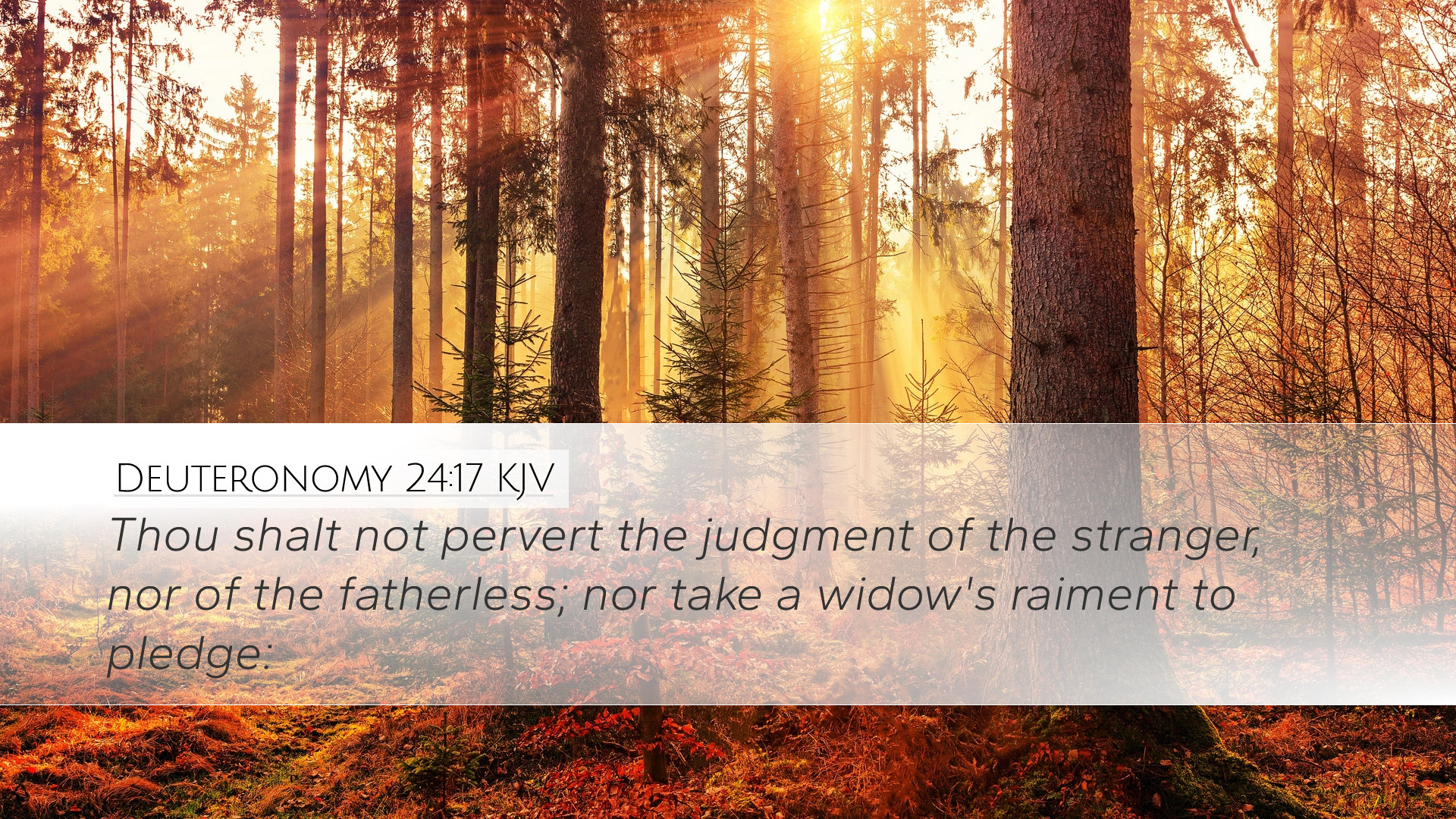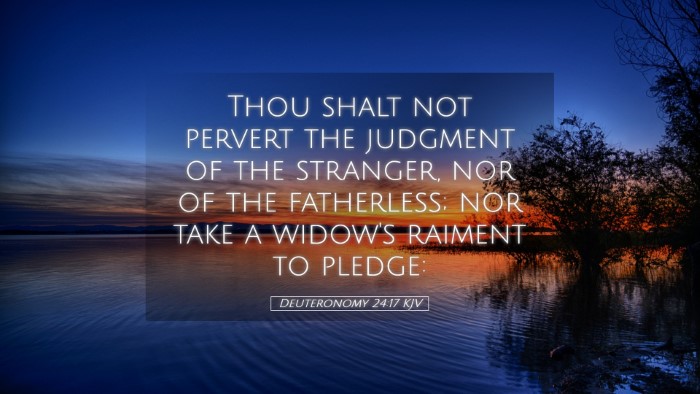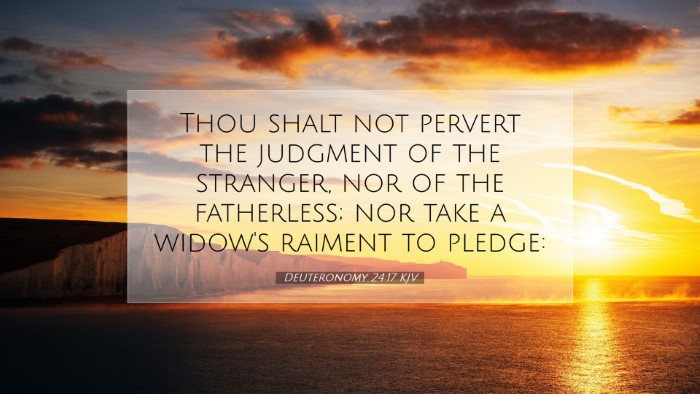Commentary on Deuteronomy 24:17
Verse Text: "You shall not pervert the justice due to the stranger or to the fatherless, nor take a widow's garment as a pledge."
Introduction
The verse Deuteronomy 24:17 calls for the just treatment of the vulnerable members of society. This section of scripture emphasizes God’s concern for the poor and the marginalized, showcasing the ethical standards God desires from His people. This commentary synthesizes insights from noted scholars including Matthew Henry, Albert Barnes, and Adam Clarke to provide a comprehensive understanding of this important verse.
Contextual Background
The book of Deuteronomy serves as a restatement of the Law given to the Israelites, aimed at guiding them as they prepare to enter the Promised Land. Chapter 24 details laws concerning social justice, which are central to the welfare of the community. This particular verse focuses on the importance of justice for those who are easily exploited.
Main Insights
1. Justice for the Vulnerable
Henry notes that this command is a clear injunction against the corruption of justice. The "stranger," "fatherless," and "widow" represent those who lack social or legal protection. The biblical mandate emphasizes the need for the Israelites to act with integrity, safeguarding the rights of those who may not be able to advocate for themselves.
2. The Significance of the Stranger
Albert Barnes highlights the word "stranger," which encompasses those who are not Israelites but inhabit the land. God’s care extends beyond ethnic boundaries, reminding His people that outsiders are also worthy of justice and compassion. This mirrors the larger biblical theme that emphasizes inclusivity and community responsibility.
3. The Importance of the Fatherless
Commentary by Clarke elaborates on the specific mention of the "fatherless." In ancient society, orphans were particularly vulnerable as they lacked a male guardian. The command serves as a reminder to the community about the necessity of protecting those in such precarious situations. It signifies that neglect towards orphans is not merely a social wrongdoing but an offense against the divine law.
4. Prohibition Against Taking a Widow’s Garment
The final part of the verse addresses the practice of taking a widow's garment as a pledge. Matthew Henry warns that doing so is not only socially unjust but also a grave moral error. A widow, often left without means of support, should be treated with dignity rather than subjected to further hardship. Taking her garment symbolizes exacerbating her vulnerabilities.
Ethical Implications for Today
This verse poses challenging questions for modern ethics and justice. It calls for a reflection on how societies treat their most vulnerable members. Are there systems in place that inadvertently oppress the weak, or do we find ourselves neglecting those in need? The command to uphold justice serves as a call to action for Christians today to advocate for the voiceless.
Theological Reflections
The larger theological principle in Deuteronomy 24:17 reflects God’s character as a just and compassionate deity. In context, this verse resonates with the message of Christ, who emphasized love and justice in His ministry. This foundational understanding invites biblical scholars and theologians to analyze how Old Testament themes of justice shape New Testament teachings and Christian living.
Practical Applications
For pastors and leaders, the context of this verse can inspire sermons and discussions focusing on social justice. The lessons here encourage church communities to engage in social responsibility, activating resources and initiatives that serve marginalized populations in their communities.
- Advocacy: Promote policies that protect vulnerable populations.
- Community Programs: Create outreach programs aimed at serving the fatherless and widows.
- Ethical Teaching: Teach congregants about the importance of integrity and justice in daily life.
Conclusion
Deuteronomy 24:17 stands as a salient reminder of God’s demand for justice, especially concerning the disadvantaged. As this commentary has shown, the insights from Henry, Barnes, and Clarke enrich our understanding of how the principles of justice should be woven into the fabric of our lives. It challenges both the individual and the collective to embody a justice-oriented mindset, following the heart of God in our interactions with society.


